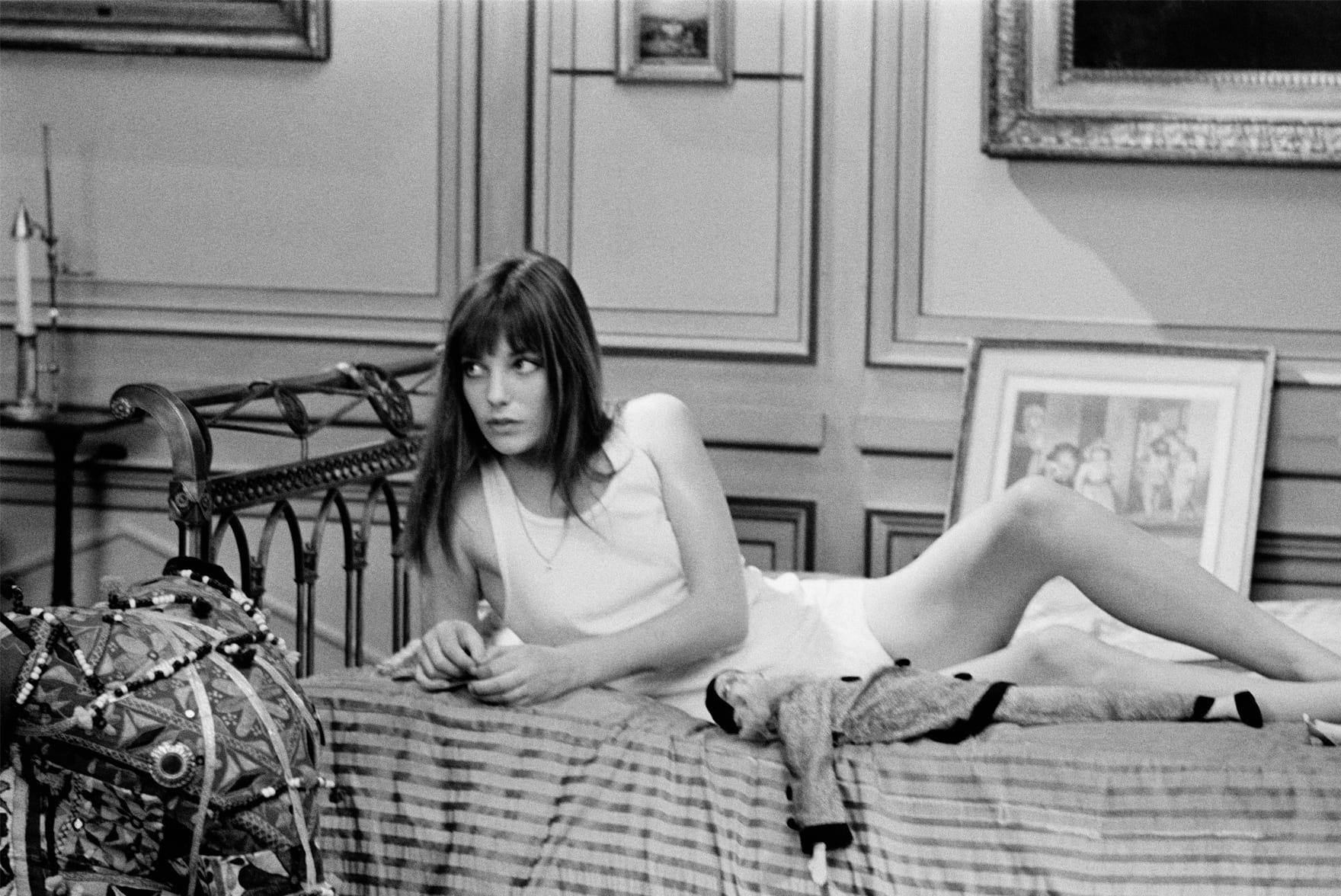

It seems Jane Birkin and Serge Gainsbourg never really separated. The iconic lovers – she the girlish ingénue, all doe eyes and Bambi limbs, he the man described by French President Mitterrand after his death in 1991 as “our Baudelaire” – are enmeshed in the French psyche, and Birkin isn’t one to shatter illusions. She speaks of Gainsbourg – her mentor and great love – as though he’s just nipped out to the market. Since their separation and his death, he’s remained a powerful presence in her life, mostly through his music, which she went on to perform, cabaret style, for two decades, and her memories of him are vivid. She hoots with laughter recalling nights on the town in Paris in the 70s and, along with her fierce commitment to numerous social causes, is devoted to upholding his artistic legacy. “Why do I owe it to Serge? Well, I just do, that’s all,” she says softly.
Though she speaks with hurried candour about the ‘jolly’ times, there’s a sense nothing has ever come close to her relationship with Gainsbourg – a passionate 12-year partnership not without controversies. Their duet Je T’aime … Moi Non Plus earned them the scorn of BBC and the Vatican, and Birkin has often recounted tales of their spats, including one where she launched a custard pie at Gainsbourg’s face then dramatically threw herself into the Seine.
Still intent on pleasing Gainsbourg, Birkin takes comfort knowing he’d be grateful for her loyalty to his art. “I get over the mourning stage 20 years later,” she says thoughtfully, “and I think, gosh! I’d love it if someone picked up a play of mine or a song I’d written and gave it new life.”
Birkin is, after all, proof that some love stories are beyond iconic – they’re eternal.
Did Paris feel like home as soon as you arrived?
Coming from a nicely austere England in 1968 to Serge and his oriental family, I mean, it was extraordinary. It was all so much fun in comparison to London, and I’d come out of 1968 London that was swinging. It was the refined French lifestyle – to be able to drink on the pavement at the cafes and wander the streets. I’d come out of a very disastrous marriage to John Barry where I was so hurt and sad, and I could hardly believe that this man [Gainsbourg] had fallen in love with me, that he thought girls with no chests – half like a boy! – were absolutely wonderful. I was Serge’s criterion in beauty – he’d drawn girls like me when he was a 19-year-old art student. He’d come out of a sad affair with Brigitte Bardot, who was the most beautiful woman in the world, and he had this wonderfully screwed up face. He was fantastic – beautiful I thought! – absolutely divine.
What were your first thoughts of Serge?
Everyone said he was so dangerous, but I knew he wasn’t. He was a pushover – he was so sweet and funny and he made me laugh so much – cry laughing! I was suddenly taken in and adopted by Serge’s family and then by the whole of France. I really never wanted to go back home [to England] again, so I never did.
“Why do I owe it to Serge? Well, I just do, that’s all.”
Your love story is somewhat mythical.
I think, to be honest, it’s because we were at our best. I look back at the photos and I think, ‘Oh, not bad!’ [laughs] I was fresh from England and Serge was this wonderful sort of Pygmalion – we looked frightfully young. I made him laugh, but I gave as good as I took.
What do you remember about Paris in the 70s?
Oh, getting dressed up to go out! We’d get all dressed up and we used to go off to Maxim’s for the New Year’s party. I used to take as many of the plates and as much of the silverware as I could and push them into my knickers. They’d always fall out as we left Maxim’s and at the end we had all the garcons who used to hand them over anyway as we left, knowing that one was looking for souvenirs [laughs]. There were crowds outside wanting autographs – it was a time of great innocence, and I don’t think social problems were as they are today. I mean, who would walk out of Maxim’s with half the cutlery in their underclothes?
We’d ride around Paris on a tri-cycle and people used to call out “Gainsbourg!” They could recognise us from the back because of my basket and his ears. We were a very jolly couple, but then there was the scandalous side. My parents were constantly trying to explain to their friends that we were popular in France and I was doing these wonderful films for children. We didn’t come across that way in England, really. They saw me tied to radiators and things like that [laughs].
You lived together for more than a decade, didn’t you?
Yes. He was a very difficult man to live with but when I wasn’t living with him anymore he wanted to be Lou’s godfather, and he went on writing songs for me. I had the very best of him, it’s true. Later, when he was with Bambou and had his baby, he was able to come to me when anything went wrong and he was Charlotte’s father, so of course we had room for him, time for him, even if he turned up plastered with police at four o’clock in the morning when I’d make dinner for him again. It was the most perfect of partnerships ...



